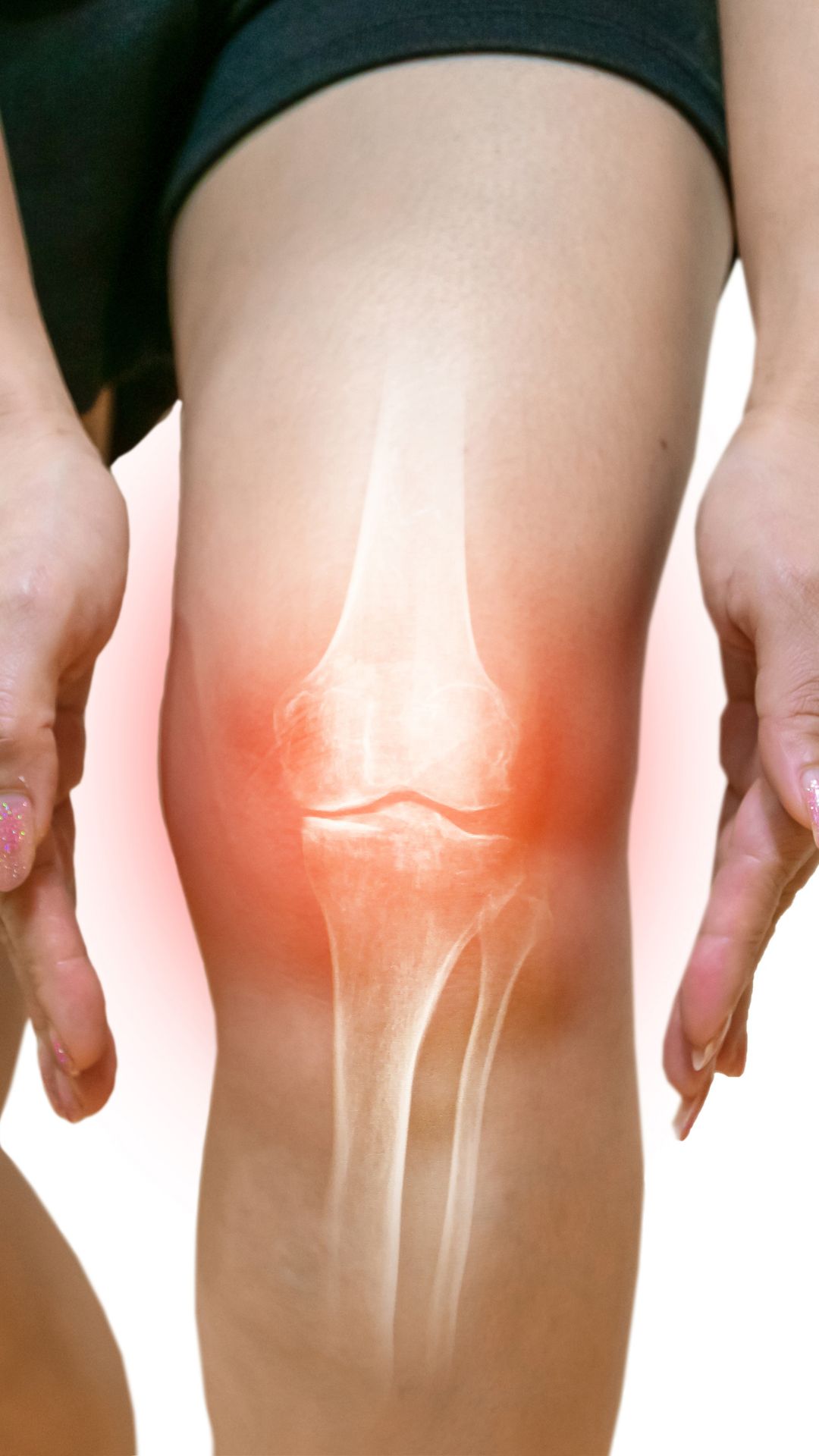What is Osteoarthritis?
Osteoarthritis is a progressive degenerative condition of cartilage (degenerative chondropathy) that, in severe cases, affects the bones of mobile joints. Osteoarthritis can affect any joint in the human body: knee (gonarthrosis), hip (coxarthrosis), ankle, elbow, thumb (rhizarthrosis), spine, and shoulder. Initially, micro and macro lesions appear in the cartilage, triggering inflammatory responses characterized by pain, swelling, and progressive joint stiffness. Osteoarthritis is the leading cause of disability in people over 65, with prevalence increasing with age (particularly over 75).
According to current literature, osteoarthritis is characterized by anatomical and/or physiological alterations including cartilage degradation, bone remodeling, osteophyte formation (bone spurs), joint inflammation, and loss of normal joint function. Osteoarthritis significantly impacts quality of life, progressively leading to activity limitations, restrictions in active life and sports, sleep disturbances due to nocturnal pain, tendency toward depression, loss of independence, and reduced quality of life.
Generally, individuals don't seek help until they experience pain, which often indicates that articular cartilage condition is already significantly compromised and osteoarthritis is advanced. With standard therapies, spontaneous disease remission is not possible, and structural damage to cartilage, articular bone, and consequently ligamentous, meniscal, and tendinous structures eventually leads to arthroplasty (joint replacement).
How Can Regenerative Medicine Treat Osteoarthritis?
Adipose tissue is the ideal source for extracting and utilizing mesenchymal stem cells (MSCs), as it can be easily accessed and harvested through minimally invasive surgery, is available in sufficient quantities in most individuals, and provides adequate quantities of progenitor cells with good viability and differentiation potential minimally dependent on age.
Lipogems technology uses gentle mechanical forces to obtain a micro-fragmented regenerative product with cells that maintain high specific differentiation properties. Mechanically derived mesenchymal stem cells (MSCs) have demonstrated better differentiation potential, richer bioactive molecule composition (secretome), and significant differences in sophisticated cell content (exosomes) that transport nutrients, genetic material, growth factors, and tissue-specific angiogenic factors, such as for knee cartilage or any other joint.
With these characteristics, as demonstrated in literature, MFat Lipogems tissue has a higher degree of efficacy and safety in the regenerative treatment of cartilage and bone tissues damaged by symptomatic osteoarthritis, even in advanced stages.
